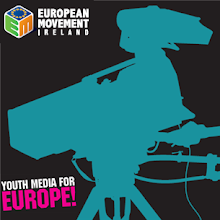By Dónal Hassett
Few political obituaries provoked as much interest in the wake of this week's Euro-elections as that of the ever-controversial Libertas leader Declan Ganley. Ganley, who burst onto the political scene as leader of, and infamously, chief financier of Libertas' No to Lisbon campaign, is now licking his wounds from his brief and colourful, but ultimately unsuccessful, foray into Irish politics. The Libertas ‘pan-European’ party, Ganley’s brainchild, failed spectacularly in a European elections which saw an increase in support for virtually all right-wing Eurosceptic parties except those standing under the Libertas banner. While party supporters had predicted upwards of 100 seats, the final result was dismal- just one MEP, French ultra-conservative Phillipe de Villiers, was returned to the Parliament for the party. Where did all go wrong for the Ganleyites and their dream of converting Ireland’s No to Lisbon into a Yes to Libertas?
Undoubtedly, Libertas in Ireland was seeking to tap into a resevoir of conservative Catholic traditionalist voters. Ganley’s candidacy in the North West constituency sought to attract the substantial support base of former MEP Dana Rosemary Scallon who stood on a platform of social conservatism and Euroscepticism. In an effort to woo her voters, Ganley attacked his main rival, Independent MEP Marian Harkin by alleging her allies in the European Parliament were all pro-abortion, attempting to undermine Harkin’s self-professed “social conservatism”. However this move backfired when it emerged that a leading candidate for Libertas in the Netherlands had strong links to pro-abortion and even pro-euthenasia groups. While Dana’s endorsement, arriving late as it did, did indeed bouy up the Ganley campaign, it proved too little too late for what was to be an expensive experiment in Irish politics.
What can the Libertas experience tell us about Irish voters? Firstly, it seems evident that the resevoir of conservative Catholic voters is slowly being eroded in the newly modernised Irish society. Not only did Libertas candidates fail to secure any seats but also Kathy Sinnot, who shares many conservative ideals with Ganley and Dana, lost her seat in the South constituency.
Secondly, these elections show up the ideological divide within the anti-Lisbon campaign. In television interviews from the count centre, Ganely expressed confidence that transfers from the Sinn Féin candidate would narrow the gap between him and the leading candidates. However, transfer rates showed little distinction between pro- and anti-Lisbon candiadtes, in this most anti-Lisbon part of the country. Clearly Sinn Fein's left-wing republican voters saw no great attraction in voting for a conservative pro-enterprise candidate (with an English accent as it happens!)
Finally, the failure of the Libertas campaign was a failure for the kind of expensive and negative campaigning often practiced in America. Ganley’s highly personalised attacks on candidates, a policy echoed by the party’s candiadtes in Dublin (Caroline Simons) and in East (Raymond O’Malley), seem not to have gone down well with the Irish electorate. Simons’ constant barracking of other candiates during a radio debate was very unpopular, while O’Malley’s solo run on ‘blue cards’ for ‘foreign’ workers did not go down well in border areas. No amount of money and slick media advisors could cover these candidates’ gaffes.
The Libertas experience, while a colourful sideshow in these elections, should reassure mainstream politicians that personal attacks and negative campaigning appeals only to a marginal constituency of the Irish electorate. This electoral failure also augurs well for the pro-Lisbon campaign.
Thursday, June 11
Subscribe to:
Post Comments (Atom)










No comments:
Post a Comment